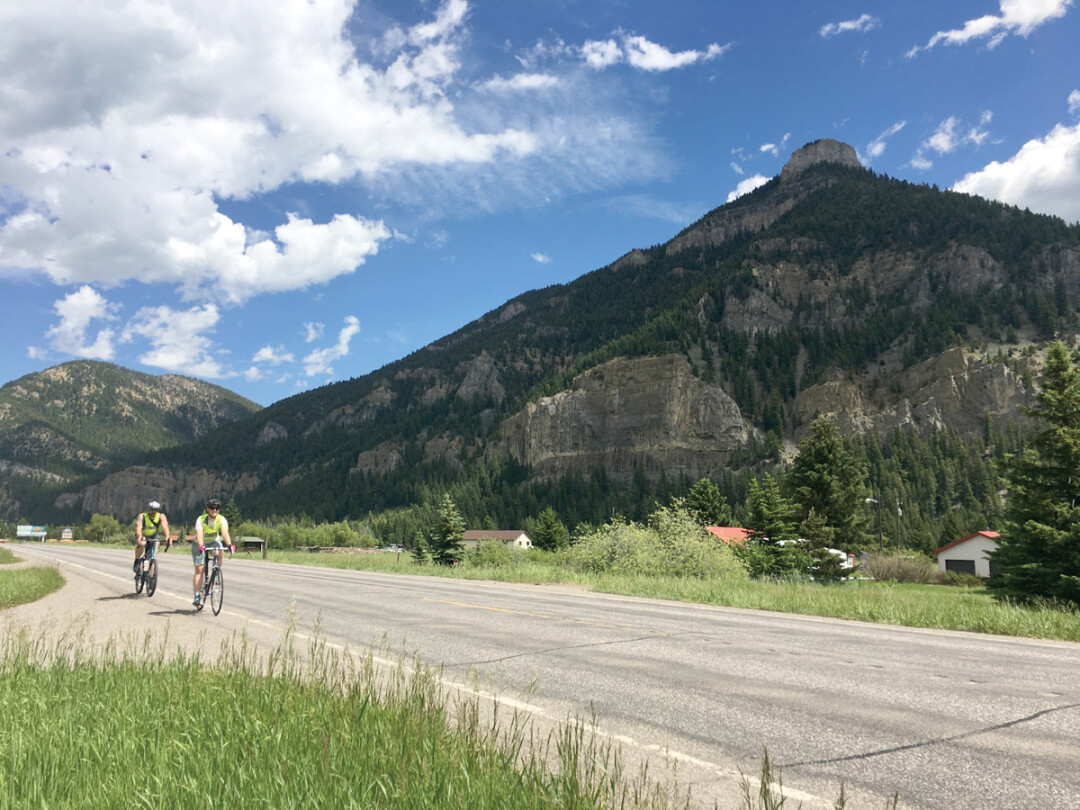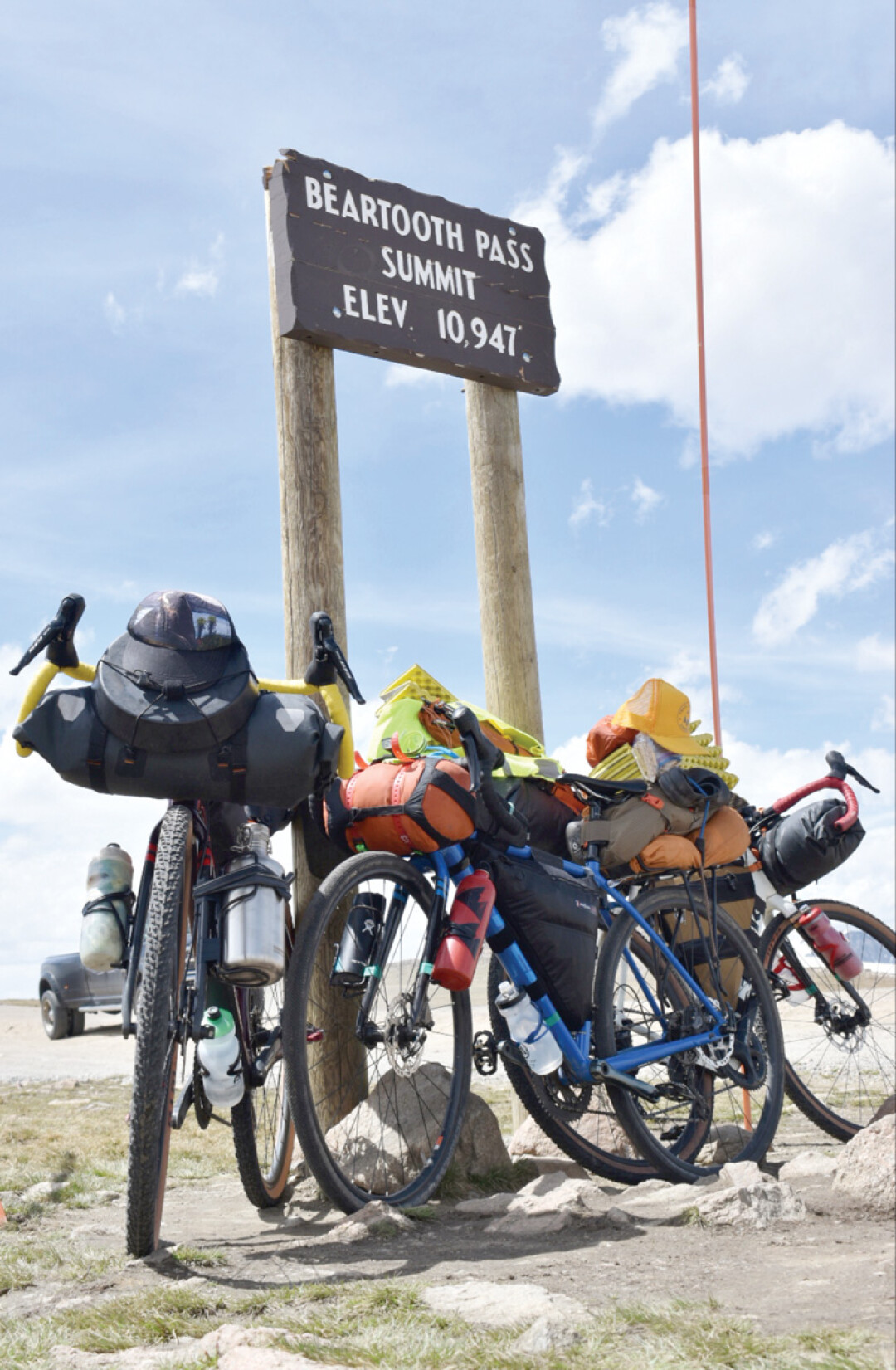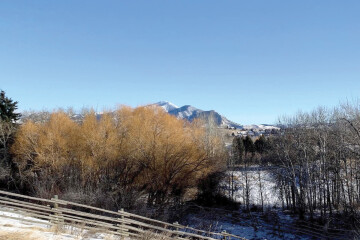Riding For Science

August 8th, 2020, 7:00 am. That morning, like a single sudden morning every summer, I woke up reminded that seasons exist just when I was starting to consider a bedroom air conditioner. The first clue of the shift comes as an abrupt and unmistakable crispness, replacing the sweaty haze of summer’s dog days. It’s always a relief to feel this sharp change because I know it’s ushering in my favorite Montana season. Fall is a time of movement and transformation for humans and wildlife alike, and some of the most amazing opportunities for spotting our elusive wild neighbors exist in the gradual inward turn of early autumn.
From hunting to hiking to fewer crowds at Yellowstone and Glacier, Montanans are familiar with the plentiful outdoor options the changing seasons bring. However, an opportunity for wildlife viewing exists this fall that might be surprising: cycling. Adventure Scientists, a Bozeman-based nonprofit, is currently recruiting for their multi-year Wildlife Connectivity study, a project inviting volunteer cyclists to pedal a stretch of Montana road and collect wildlife data as they go.
After applying to volunteer and going through an online data collection and safety training, participants choose their route and embark. As they ride through some of the state’s most beautiful terrain, cyclists keep an eye out for live animals and roadkill alike and record each encounter in an app on their phones. The data will be used to help identify hotspots where wild animals cross roads on their seasonal migrations and daily wanderings, with the goal of saving both people and wildlife by reducing car accidents with wild animals. Highway and wildlife officials can use the data as they consider preventative measures such as additional signs, lights, overpasses, or other mitigation structures.
Adventure Scientists says road cyclists are key to the effort because they see more than people in cars. Bicyclists travel more slowly and quietly and have a better view into roadside ditches. ‘[Cyclists] have a unique perspective… that allows us to see things that other people are not noticing,’ says Tim Marchant, describing his experience volunteering during the fall 2019 season in a recent blog on Adventure Scientists’ website. ‘I highly recommend it to folks. It’s a nice way to use the bicycle for productive purposes.’”
I suspect that we’re all feeling the strain of this spring and summer. At the peak of July’s heat, I simply became used to the sweat lining my face beneath my mask, and a commitment to getting outside gave way to many an exhausted night wondering when I could hug my friends again. However, the shifting seasons reawakened my desire to get outdoors and have some fun, and the Wildlife Connectivity project seems like a perfect and socially-distanced way to do just that while saving lives in the process. As their blog notes, “At a time when field research around the world has largely been brought to a standstill due to travel restrictions and social distancing requirements, cycling Montana roads gives volunteers a chance to help advance science that not only benefits their communities but can be scaled up to help reduce wildlife-vehicle collisions worldwide.”
Because Adventure Scientists collects data to very exacting scientific standards, volunteers only record their observations during preset “ride periods” that happen multiple times throughout the summer. The last period of 2020 is coming up this month, from September 18 - 27. Participants can choose any day or days within this window to ride. In looking at the map of routes (which can be found at www.adventurescientists.org/ride), I see that some of my favorite parts of the state are still available, including the Beartooth Highway and many routes near Flathead Lake and Glacier National Park. And also, many of the less-traveled regions of this vast state are as yet unclaimed, such as the sprawling plains around the Missouri River Breaks, highways surrounding Fort Peck Reservoir, and other regions of eastern Montana. If exploring more of the land we call home has been on your bucket list, Adventure Scientists’ Wildlife Connectivity project could be a great way to scratch that itch and say hello to the arrival of wild fall beauty.
And in case you’re on the fence, I’ll leave you with the words of study participant Dylan Malloy when asked about advice he’d give to others considering taking part:
“I’d tell them to go all in. I’d tell them my stories – being outside, feeling connected with the process of being outside, and just having a fun purpose to get outside and ride. You can make a day out of it, pack a lunch, go out for a nice cruise, you get to see the hills, the mountains, the wildlife, and then at the same time you’re helping provide information to improve on what we do now. It’s just a super fun way to do the things that you already love to do, and also have some more meaningful impact.”
To learn more about the study, see available routes, or sign up to participate, go to www.adventurescientists.org/ride


